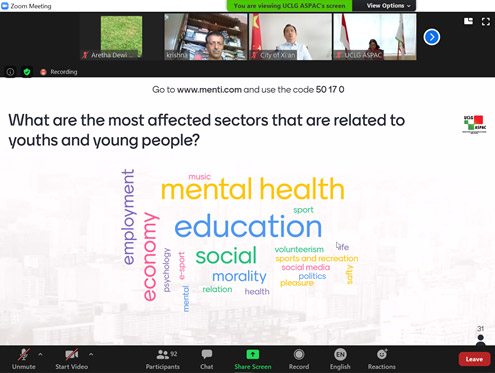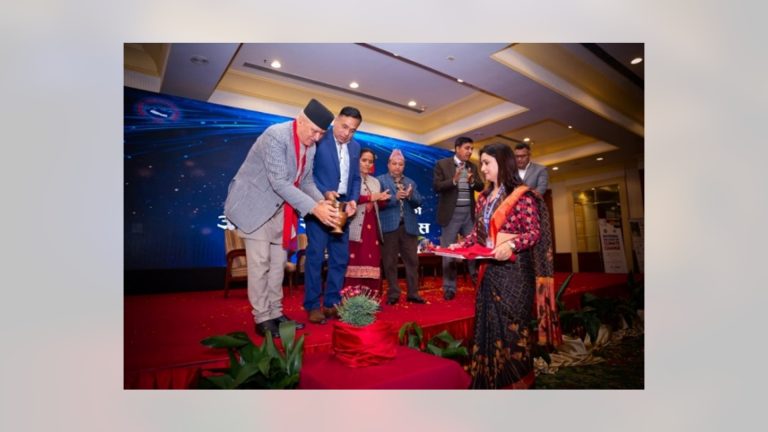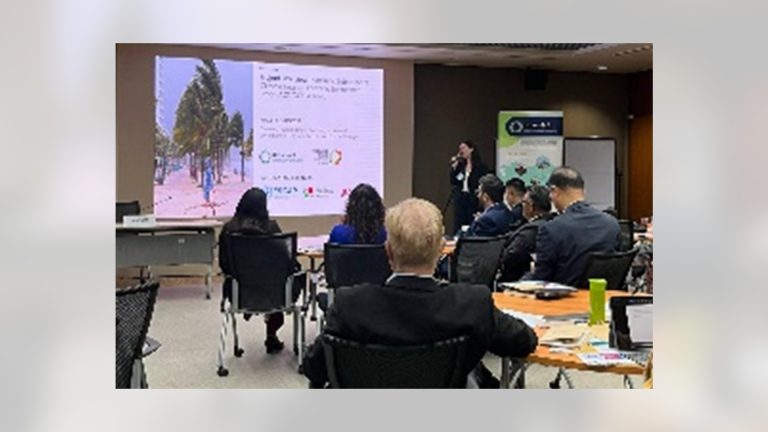3 July 2020 | JAKARTA – UCLG ASPAC has advocated the importance of involving youth in local development. Embracing this thought, UCLG ASPAC incorporated “Empowering Youth on Resilience” theme in the webinar to share the insights further during this pandemic and to gain lessons learnt from relevant stakeholders. Attending this webinar were representatives from UNDP, UNICEF, LGNZ, as well as cities in Asia-Pacific.
This event was attended by various speakers such as Mr. Li Mingyuan (Xi’an City Mayor, China/Co-President UCLG World), Mr. Savinda Ranathunga (The Youth Co: Lab Project Coordinator UNDP Regional Hub for Asia Pacific), Ms. Lei Motilla (Founder of A14GOV youth led-startup in The Philippines), Ms. Allison Morris (UNICEF Bangkok Office), Ms. Malti Gandhi (Chief of Planning, Monitoring, and Evaluation UNICEF China), and also Ms. Rebecca Kiew (Kita Jaga Kita, Malaysia). The webinar was participated by more than 94 participants from Asia Pacific region.
The Web-Share #13 was opened by Mr. Dave Cull (Co-President UCLG-ASPAC/President of LGNZ, New Zealand) who shared that young people are often the most affected by the consequences of the pandemic. However, he noted that young people are not only victims of the COVID-19 crisis but they may be the huge part of the solution to it. Mr. Cull also mentioned that traditional decision making in leadership generally relies on historical experience. Additionally, this pandemic would not be the last pandemic that runs around the world and affects us, so we need to build resilience. There are three strategies to focus on: protect young people and children; build resilience; involve young people in the solution to the problem caused by COVID-19.
The keynote presentation was delivered by Mayor Li Mingyuan of Xi’an City. He shared that responding to the current pandemic, schools in the city organised online learning to achieve the learning objectives. Xi’an City has strong commitment to support youth development and research in the city and with other UCLG ASPAC members. He mentioned that Xi’an will have a joint programme with UCLG ASPAC to provide scholarship for the local governments in Asia Pacific. Speakers from different youth initiatives shared their stories on the COVID-19 related work. For example, Mr. Savinda Ranathunga (The Youth Co: Lab Project Coordinator UNDP Regional Hub for Asia Pacific) presented that empowering youth on resilience could be done by implementing the Theory of Change which is devided into three part (upstream, mid-stream, and downstream). The upstream part consists of systemic approach to youth employment, ecosystem diagnostic and policy support, and action oriented research. This part heads to enabling environment/policies. The midstream part consists of youth empowerment alliance, network of network, regional summits, financial solutions, and advocacy for behavior change. The downstream part consists of national dialogues/innovation challenges, springboard incubation programme, and movers/skills for self-employment. This part heads to capacity development.
Ms. Allison Morris, UNICEF Bangkok Office, shared that COVID-19 pandemic causes negative impacts on young people: disrupted health services, increased level of anxiety, increased risk of domestic violence, increased number of child labour and child marriage, limited access to remote education, and certain groups (girls) are less likely to return to school. Therefore, local governments in Asia Pacific should do some actions to deal with these conditions, such as to maintain connections with young people, tackle the spread of inaccurate information, debunk myths, confront stigma, and the most important thing is to engage young people in all steps of COVID-19 response and recovery.
Ms. Lei Motilla (Founder of A14GOV youth led-startup in The Philippines) shared about A14GOV. A14GOV is a govtech startup dedicated to improve public service and promote citizen participation. According to her, the world is changing fast but the public servies are not responsive enough so there must be solution for government to keep up the capabilities. One of the solutions is to amplify meaningful service through socialising artificial intelligence.
Ms. Rebecca Kiew (Kita Jaga Kita) shared about “Kita Jaga Kita,” an initiative which aims to help vulnerable communities, SMEs, frontliners, and people who need support in Malaysia. “Kita Jaga Kita” is a website that lists all the COVID-19 related initiatives, then it verifies, and only links or directs to external initiatives.
In her closing remarks, UCLG ASPAC Secretary General Dr. Bernadia Irawati Tjandradewi highlighted that the COVID-19 pandemic has been affecting everyone, including women, children, and youth. During the pandemic, there are many issues that we have to be concerned about, such as the domestic violence, economic issue, and social issue. She hoped many local leaders would pay more attention to embracing young people, especially girls, in COVID-19’s recovery plans and actions. She thanked speakers and Mayor Xi’an for his leadership and commitment to support the youth and young people development programme. UCLG ASPAC is committed to work closely with other members in the ASPAC region in empowering young people.











